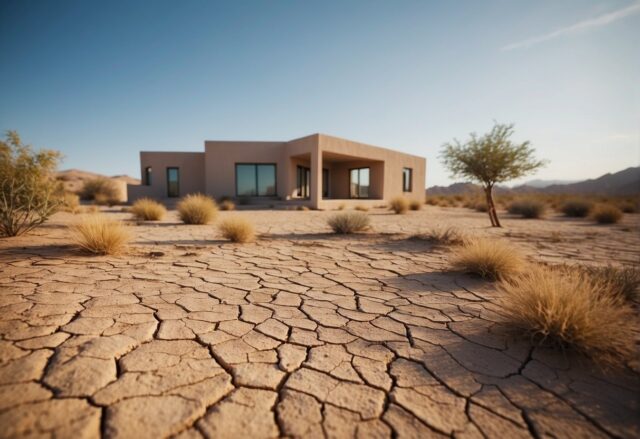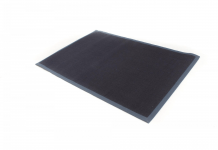
Las Vegas, a city known for its vibrant nightlife and bustling casinos, faces a less glamorous challenge: hard water. The term “hard water” refers to water with a high mineral content, typically calcium and magnesium, which can lead to various complications ranging from minor nuisances to significant infrastructure issues. In Las Vegas, the water hardness level is one of the highest in the United States, a consequence of the city’s water supply being primarily sourced from Lake Mead, which receives its water from the mineral-rich Colorado River.
This high mineral content presents a series of concerns for residents and businesses alike. On a domestic level, hard water can damage appliances, leave residue on dishes and skin, and increase soap consumption due to its reduced lathering ability. Industrially, it can scale and clog pipes, causing inefficiency and requiring costly maintenance. Over time, the accumulative effect of hard water can lead to substantial economic burdens.
In response to the challenges posed by hard water, Las Vegas has adopted a variety of strategies. The city’s water management is continuously evolving, employing both innovative technologies and public policies to address the issue. Water softening solutions for individuals and industries are widely utilized, while research into more sustainable and large-scale interventions is ongoing. The situation in Las Vegas underscores the broader need for proactive water resource management in desert cities facing similar challenges.
Understanding Las Vegas’s Hard Water
Las Vegas faces a significant challenge with hard water, which has implications for households and infrastructure. This section will define what hard water is, examine Las Vegas’s specific water hardness levels, and consider the impacts this has on various aspects of life in the city.
Defining Hard Water
Hard water is characterized by a high concentration of minerals, chiefly calcium and magnesium. They are picked up by water as it moves through soil and rock. In general, the hardness of water is measured in grains per gallon (gpg) or parts per million (ppm).
Las Vegas Water Hardness Levels
The Las Vegas Valley Water District reports that the water hardness in Las Vegas is typically around 278 ppm or 16 gpg, making it “very hard” on the hardness scale. For residents and businesses, including those providing plumbing services in Las Vegas, dealing with this level of water hardness is an everyday reality. Hard water can lead to scale buildup in pipes and appliances, necessitating more frequent maintenance and potential replacements.
Impact of Hard Water on Daily Life
In Las Vegas, the high mineral content of the water can lead to a variety of challenges within households. Understanding these impacts is the first step in mitigating their effects.
Effects on Household Appliances
Household appliances that use water, like dishwashers and washing machines, suffer from the effects of hard water. The minerals, primarily calcium and magnesium, can build up over time, leading to scale formation. This scale buildup can clog pipes, reduce the efficiency of appliances, and increase the need for maintenance and repair. In severe cases, homeowners may reach out to a Las Vegas plumber to deal with significant scale-induced blockages.
- Dishwashers: Reduced effectiveness, leading to spots on glassware
- Washing Machines: Potential for reduced lifespan and clothing that feels stiff
- Water Heaters: Decreased heating efficiency and increased operational costs
Skin and Hair Health Concerns
The minerals in Las Vegas’ hard water can also affect one’s skin and hair health. When bathing or showering, the water may not lather as well with soap, leading to potential for soap scum to form and settle on the skin. This can cause the skin to feel dry and itchy. Similarly, hair washed in hard water can become dull and more susceptible to tangling.
- Skin: Increased dryness and potential for irritation
- Hair: Dullness and a tendency to feel unclean even after washing
Statistical Overview of Hard Water in Las Vegas
Hard water, defined by its high mineral content, presents significant challenges in Las Vegas—a city where the Water Quality Report notes the water hardness level as very high.
Prevalence of Hard Water Issues
In Las Vegas, the water’s hardness is quantified at 278 parts per million (ppm), or 16 grains per gallon. This high level ranks the city as having the second hardest water in the nation when compared to other major metropolitan areas. The primary source of Las Vegas’s water, Lake Mead, brings with it minerals from the Colorado River, contributing to the hardness experienced by residents and industries.
Economic Implications
The economic impact of hard water can be felt across various sectors in Las Vegas, from increased maintenance for pipelines and appliances due to scale buildup to additional costs in water treatment. The hospitality industry, a cornerstone of the city’s economy, may also bear the weight as hard water affects laundry operations, facility maintenance, and customer satisfaction. However, investments in water softening and treatment technologies, such as those acknowledged at Las Vegas Valley water treatment plants for their excellence, show commitment to mitigating these challenges.
Solutions to Hard Water Problems
In Las Vegas, tackling hard water issues requires effective strategies and skilled professionals. Residents can look into water softening systems and enlist the expertise of Las Vegas plumbers who specialize in hard water treatment.
Water Softening Techniques
To combat hard water, the installation of a water softening system is a primary solution. Ion exchange softeners work by replacing calcium and magnesium ions—minerals responsible for water hardness—with sodium or potassium ions. This process results in “soft” water that reduces scale buildup in pipes and fixtures. For those concerned about sodium intake, salt-free water conditioners use a physical process, known as Template Assisted Crystallization (TAC), which alters the minerals in a way that they do not adhere to surfaces.
Here are some commonly used water softening techniques:
- Ion Exchange Softeners
- Salt-Free Water Conditioners
- Magnetic or Electronic Water Descalers
- Chelation Systems
Role of Professional Plumbers
Las Vegas plumbers play a crucial role in addressing hard water problems. These experts can assess a household’s specific needs and install the appropriate water softening system. Additionally, plumbers can provide regular maintenance to ensure the system performs effectively over time. Routine assessments by a professional can prevent the premature failure of water appliances due to limescale.
It’s advisable for residents to seek plumbers with experience in dealing with Las Vegas’s unique water conditions. Not only do they install and maintain softening units, but they can also offer valuable advice on water-saving practices that can further protect home plumbing systems.








